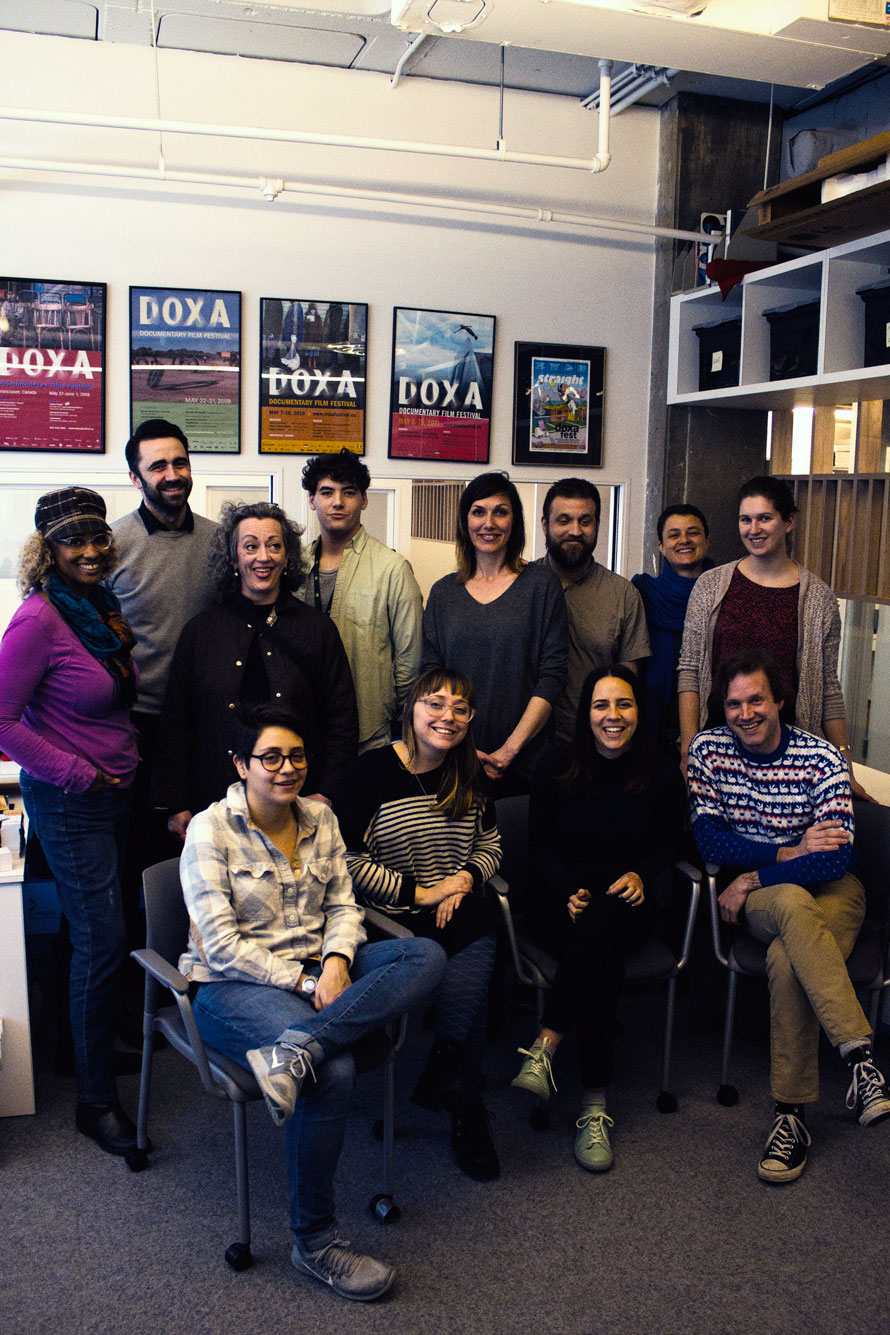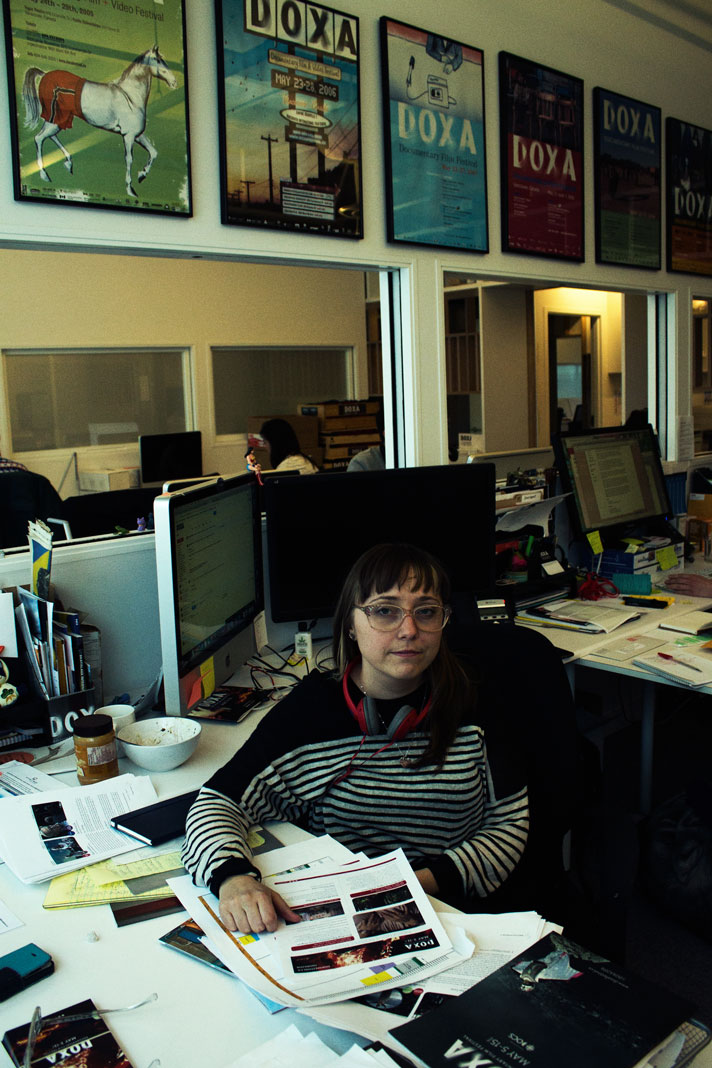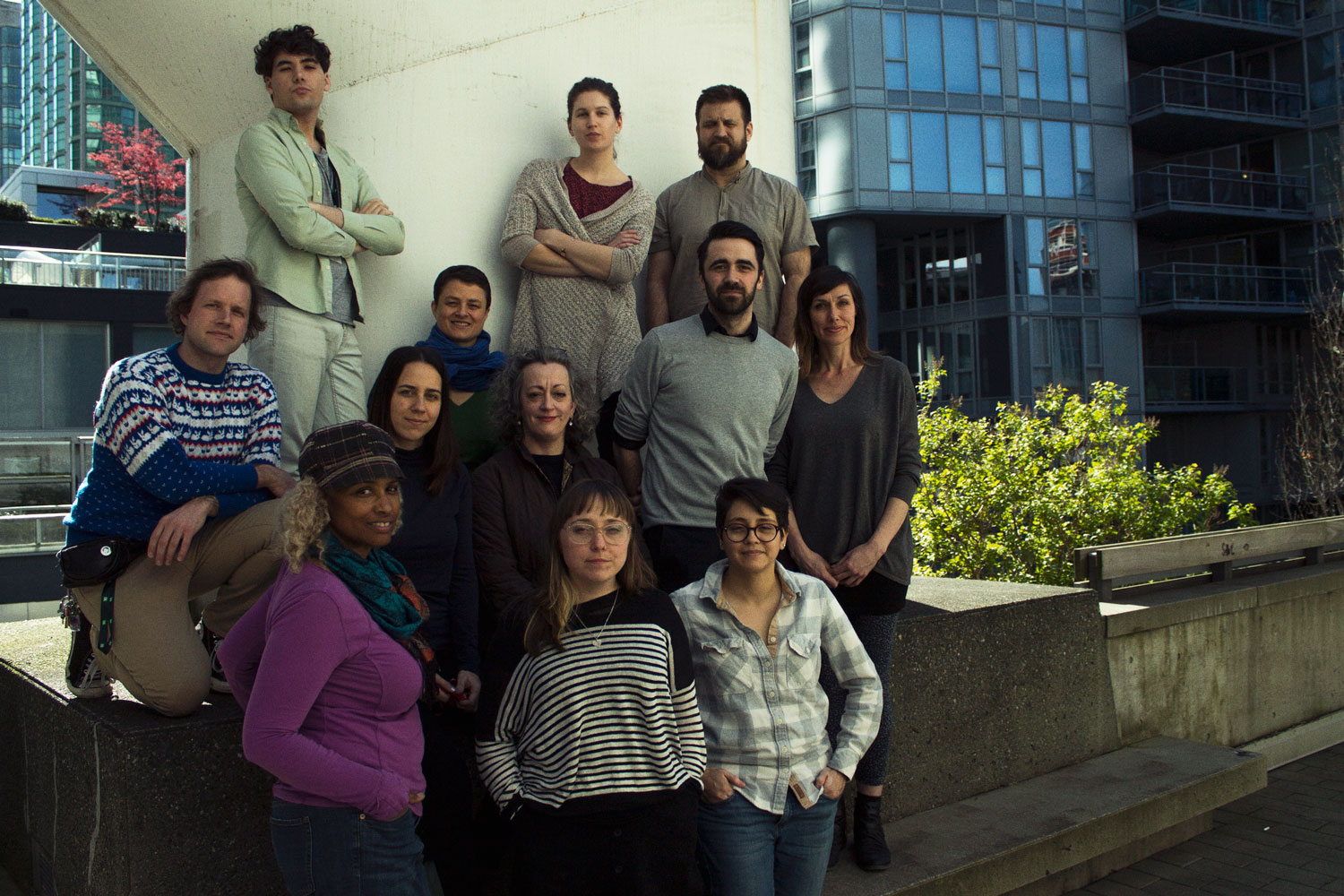When this interview takes place, we are two weeks from the seventeenth DOXA, the Media Documentary Society’s annual film festival. I’m sitting with Selina Crammond and Milena Salazar, respectively DOXA’s Director of Programming and Programming / Industry Coordinator. The two anticipate the hubbub that festivals inevitably entail. But right now, DOXA’s office, nestled in a shared arts space next to CBC’s downtown offices, has a quiet and steadfast energy.
DOXA’s foremost purpose is to serve as a platform for alternative voices and the art of documentary. But documentary — documentation — feels fraught in this era of political fragmentation: burdened with anxiety and bursts of aggression. Last year, this energy manifested in the showcase series Trumped! This year, it is perhaps represented in Embedded With Extremists, featuring films about apparent jihadists and white supremacists.
If DOXA strikes a nerve, it’s not necessarily didactic. “Every film has the opportunity to deepen your understanding of an issue,” Crammond tells me; “we would never program a film that is completely one-dimensional.” The films that do agitate evince the prescience of DOXA’s curation.

DOXA is a small operation, conspicuously independent. There are no resource companies, banks, or developers in its list of sponsors: the Media Documentary Society is not a monied powerhouse. Still, this year they received over 1200 submissions. Volunteers are essential, especially for the year-round screening process. From each year’s thousand-plus submissions, DOXA selects films spanning the breadth of documentary form. Showcases compile these films into thematic showcases, including topics such as Rated Y for Youth, French French and Press Play.
Crammond and Salazar are both new in their positions: Crammond was previously the Programming and Communications Coordinator, while Salazar was an associated filmmaker and festival volunteer. This is the first year since the departure of Dorothy Woodend, DOXA’s Festival Director, and the inauguration of a “horizontal” management style, reflecting an ethos collaboration and dialogue that reflects the genre of filmmaking DOXA celebrates.
“We’re like an independent film crew — everybody has to do a little bit of everything,” Crammond tells me. “We’re in constant contact about everything because we’re such a small team. It’s an open-concept office so you inevitably hear what everyone’s talking about. […] It can be distracting, but also really awesome, and offers potential for better decision-making.”
DOXA’s core staff and programming committee are backed by a strong volunteer base. Over the years, DOXA’s volunteer-base has grown, and the festival’s curation grows more assiduous. They make risky choices, often for the best. Crammond tells me, “After being on the committee for a few years, you get a sense of what’s going to work. It’s one of the best feelings when you find a gem, and it takes on a life of its own outside of DOXA. It’s like your little film baby grows up.”

This adds up to a lot of particularities. I was delighted to see Ethiopiques: Revolt of the Soul in this year’s listings, a documentary covering the birth of Ethiopia’s recorded music. When I ask about her favourites from this year’s schedule, Crammond — an underground music mainstay as the drummer of Supermoon — shares Desolation Center and Punk Voyage. Salazar shares favourites with geographic and tonal similarities: “We had all these films by Latin American women, which were amazing. We didn’t even plan it, it just happened.” Primas and The Creator of Universes, two such favourites, take a familial approach to documentary journalism.

“We have some films,” Salazar notes, “Primas for instance, which are just a one-person crew. It’s a person going to Argentina and filming their nieces. Anyone could film their family. But only someone with years in the industry could create a piece like that; the poetics of the filmmaking, the form.”
DOXA is incomplete without its industry panels and workshops. Salazar tells me that they range from “hands-on practical skills panels” to “funding opportunities in BC” to something more expressive: “We’re seeing a rise in artistic investigative work, so we’re inviting people to talk about the intersection of documentary and journalism. We have [a workshop] on storytelling and sound. We’re looking at the artistic choices.” DOXA hopes to foster local documentarians by providing the means to experience documentary, and the entry-points to practice it.

Shortly before our conversation, Crammond received an email critiquing the festival as partisan. She was reconciliatory but resolute. “The nature of documentary is telling stories that aren’t told. The mainstream media does a good enough job of giving out certain ideas, and these films are meant to deepen conversations… You need to engage with people. But this is what we have, and this is what we stand behind.”
This year’s opening film is The Rankin File: Legacy of a Radical. Harry Rankin was a Vancouver city councillor, veteran activist and co-founder of C.O.P.E. [Coalition of Progressive Electors], who ran and lost against newcomer Gordon Campbell for the mayoral seat in 1986. The director, Teresa Alfed, is from Vancouver. The film is a combination of old 16mm footage shot by Peter Smilsky on Rankin’s campaign trail, and new interviews with those who were there, including Jean Swanson and Libby Davis.
As a socialist politician active during the era of Expo 86, a key moment in Vancouver’s urban transformation, Rankin’s story reflects a juncture for many local progressives concerned about affordability. Today, the illusion that politics can be deferred is deteriorating, and presenting work that opens up past wounds and reflects ongoing struggles is a fact of reflective filmmaking.
DOXA is a paean for the documentary: “a platform for independent documentary filmmakers” put on by a volunteer team who “love the art of filmmaking.” By zooming on Vancouver history, The Rankin File is an appropriate film to open DOXA 17 and bring the festival into focus.
In Crammond’s words, “that’s the power of documentary. You shoot something and it feels like it’s going nowhere. And now someone finds it, brings it to life. You never know how it’s going to turn out.”
X
DOXA Documentary Film Festival runs from May 3-13. Festival schedule, passes and general information can be found at doxafestival.ca.



